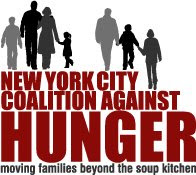"Michael Pollan claims that environmentalists and the “hunger lobby” are bought off in the farm bill, giving our support to the harmful “elephant in the room” – agribusiness subsidies — in exchange for funding for conservation programs and food stamps, which he derides as merely “fleas.”
But blaming us for bad farm bills is like blaming long-suffering Mets fans – seated in the far upper deck at Shea Stadium – for the team’s overpaid players and year-end collapses.
According to the Center for Responsive Politics, agribusinesses contributed more than $399 million to federal political campaigns between 1990 and 2006. In contrast, even when some anti-hunger groups (such as mine) risk alienating donors by opposing corporate farm welfare, we hardly impact this big-money debate.
Considering that the Food Stamp Program helps more than 26 million Americans each month, it is no mere “flea.” Fighting to help millions avoid starvation, anti-hunger advocates take what we can get.
Mr. Pollan betrays his class bias in saying that processed food is not “real food.” While I agree with him that we shouldn’t be subsidizing sugared cereals and candy, his blanket condemnation of food processed by machines seems based on the assumption that working Americans have nothing better to do than mill their own flour, grind their own corn, make their own apple sauce, or create their own peanut butter from scratch.
He implies that the hunger problem in
To truly help that population, we need to return to an

No comments:
Post a Comment